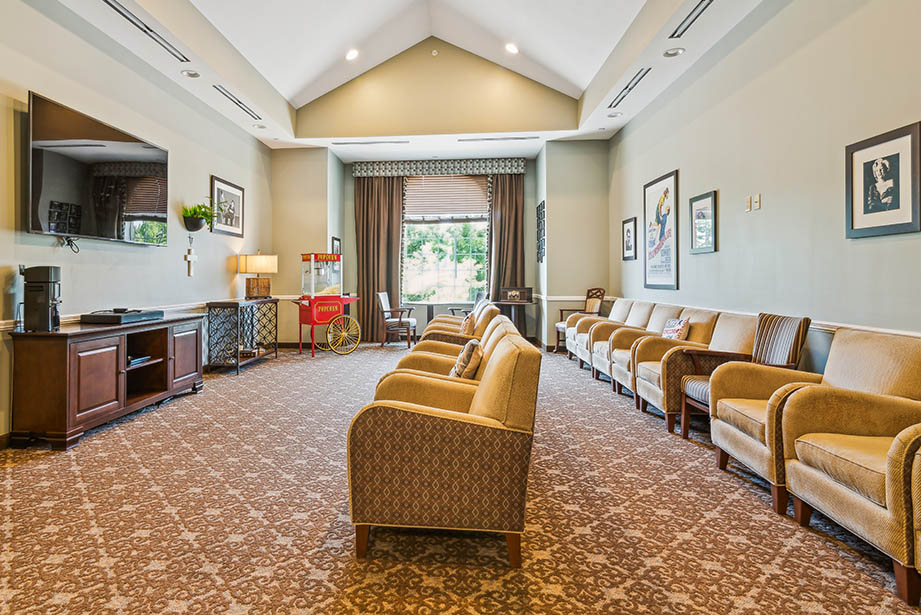Watching a parent lose their mobility can feel overwhelming. One day, they’re walking independently, and the next, they’re struggling to move from room to room. This transition affects not only their physical abilities but also their independence, confidence, and overall quality of life.
When your senior parent can no longer walk, start by exploring mobility aids, such as wheelchairs or walkers, to help them stay active and independent. Next, consider making home modifications, such as ramps or grab bars, to create a safe and accessible environment. When all else fails, you may also want to consider assisted living. With the proper support, your parents can continue to enjoy a fulfilling and active life.
Assessing the Situation
Before making any significant decisions, take time to understand what’s happening. Is the loss of mobility sudden or gradual? Temporary or permanent? Certain conditions, such as recovering from surgery or managing an arthritis flare-up, may improve with time and treatment.
Schedule a comprehensive evaluation with your parents’ doctor. They can identify underlying causes, recommend treatments, and provide realistic expectations about recovery. Physical therapists can also assess your parents’ current abilities and potential for improvement.
Don’t forget to listen to your parents’ perspective. They know their body best and may have insights about what triggered the change or what helps them feel more stable.
Exploring Mobility Aids
The right mobility aid could help restore your parent’s independence and confidence. Here’s a quick guide to help you choose the best option for their needs:
- Walkers with Wheels: These can provide stability and smoother movement compared to traditional walkers. Many models include built-in seats for rest breaks and storage for personal items—ideal for parents who may tire easily.
- Wheelchairs: There are both manual and electric wheelchairs that can be lightweight, comfortable, and highly maneuverable, offering freedom rather than limitation.
- Electric Scooters: These can be great for parents with upper-body strength who need help covering longer distances.
Consider starting with rentals or borrowed equipment, so your parents can test different options before making a commitment.
Consider Home Modifications
Creating a supportive home environment can significantly improve safety and accessibility for your loved ones. Many modifications are simple, affordable, and quick to implement. Here are some key ideas to consider:
- Install Grab Bars: Place grab bars in bathrooms near toilets and showers to provide extra stability.
- Add Ramps: Replace steps at entrances with ramps to allow seamless access for wheelchairs or walkers.
- Widen Doorways: Make sure doorways are wide enough to accommodate mobility aids (most fit through standard 32-inch doorways).
- Relocate the Bedroom: If stairs pose an issue, consider relocating the bedroom to the main floor or installing a stairlift for easier access.
- Improve Lighting: Utilize motion-sensor lights to illuminate pathways and reduce nighttime fall risks.
Small changes can make a significant difference in creating a safe and accessible space. With these adjustments, your home can become a place of comfort and independence for your loved ones.
Seeking Professional Help

Obtaining professional support for your parents may also significantly enhance their quality of life and help them maintain their independence for longer. Here are some key ways different professionals can assist:
- Physical therapists can help improve strength, balance, and mobility, even maintaining muscle tone when walking isn’t possible.
- Occupational therapists can teach energy-saving techniques, recommend adaptive tools, and support independence with activities like cooking, dressing, and bathing.
- Home health aides can provide personal care, light housekeeping, and companionship while preserving dignity.
By providing the proper support, you can ensure your parents stay safe, comfortable, and empowered in their daily lives.
Emotional Support for the Parent & Family
Caring for an aging parent can be emotionally challenging, evoking a range of emotions, including love, gratitude, stress, and uncertainty. It’s essential to acknowledge these emotions and prioritize the well-being of both your parents and your family.
Open communication is key—listen to your parents’ concerns, fears, and wishes as they adapt to changes in independence or routine. Encourage family conversations to keep everyone connected and involved. Provide reassurance and encouragement. Remind your parents that asking for help or using support tools doesn’t reduce their worth—it helps maintain their quality of life.
For families, regular check-ins can help everyone share caregiving responsibilities and offer support. Therapy or support groups can also provide a space to process emotions and gain strength from others who have had similar experiences.
How Senior Living Can Support Seniors with Walking Difficulties
Senior living communities provide a supportive and accessible environment for individuals facing mobility challenges. Designed to promote safety, independence, and connection, these communities offer a range of helpful features and services that support residents’ needs, including:
- Barrier-free living spaces designed to eliminate obstacles, these spaces facilitate independent living.
- 24/7 professional support staff who provide around-the-clock assistance while respecting residents’ independence.
- On-site experiences and amenities, which may include physical therapy, medical care, and social activities for convenience and care.
- Specialized programs and tailored initiatives to help residents with mobility limitations stay active and engaged.
- Opportunities for connection in social environments that foster peer relationships, creating a sense of belonging and understanding.
Senior living communities are more than just places to live—they’re spaces where individuals can thrive, feel supported, and maintain meaningful connections with a lifestyle that matches their needs. Many adults who experience mobility challenges find that assisted living is the right fit for maintaining their independence and quality of life.
Moving Forward with Hope & Purpose
Your parents’ mobility challenges mark the beginning of a new chapter, not the end of their story. At The Enclave of Scarborough, we know that with the proper support, tools, and mindset, your loved one can continue to live with dignity, joy, and purpose.
Most importantly, be sure to involve your parents in decisions about their care. Their input ensures that solutions align with their values and preferences, making the transition smoother for everyone involved.
Contact us today to schedule a tour with your loved one and learn how we can best support them.









